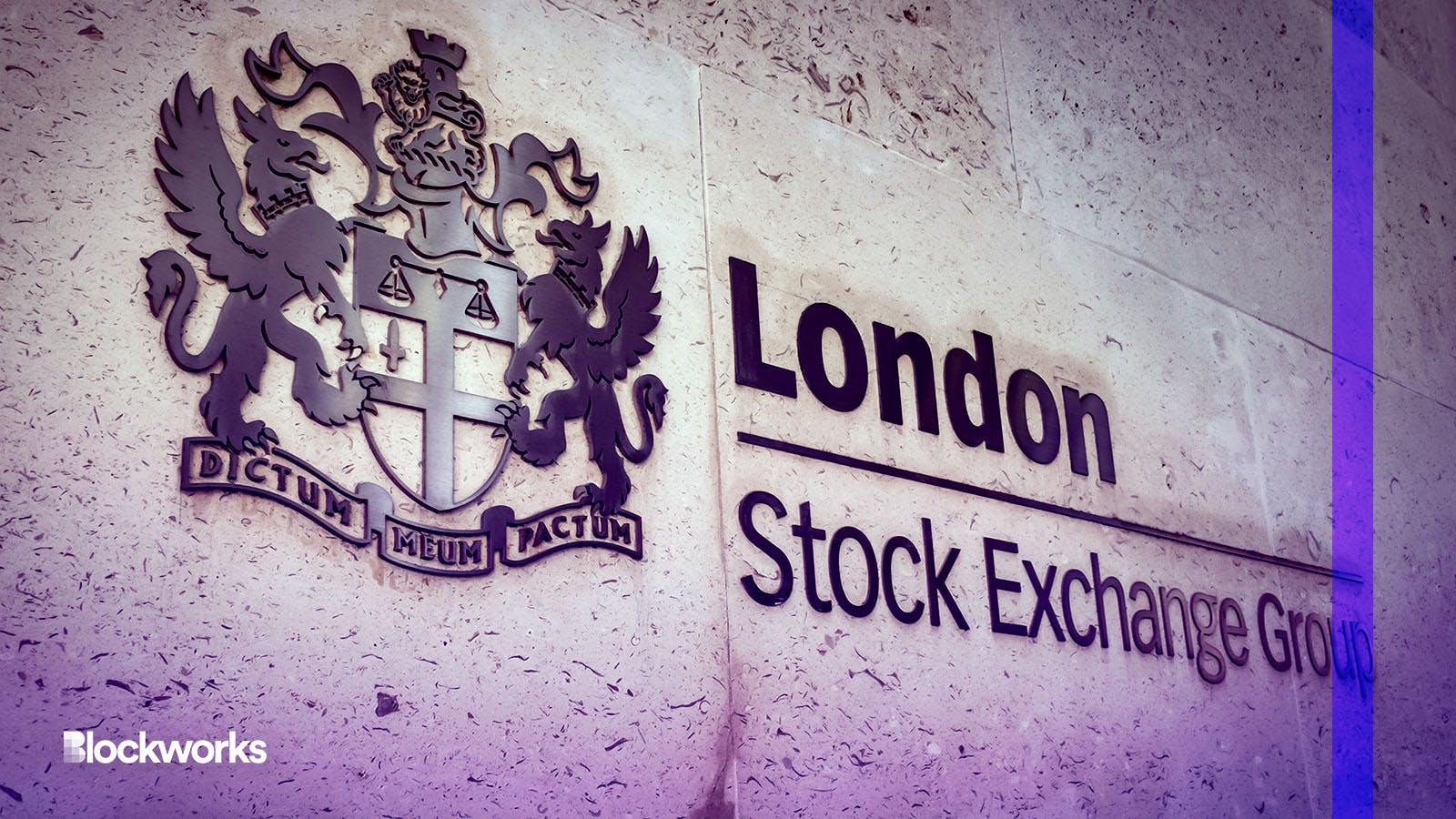LSE Group goes blockchain for digital asset initiative
London Stock Exchange Group’s focus is on using crypto technology to improve traditional asset transactions, not on trading cryptoassets

Victor Moussa/Shutterstock, modified by Blockworks
The London Stock Exchange Group (LSEG) has reportedly developed plans for a new digital markets venture after exploring the idea for about a year.
This move is expected to make it the first big exchange to widely use blockchain for trading regular financial assets, according to LSEG.
Murray Roos, the group director of capital markets at LSEG, told the Financial Times that the company chose to advance the plans after considering the idea.
Julia Hoggett, serving as CEO of the London Stock Exchange since 2021, has been tasked with leading the project, according to the FT.
LSE Group is one of the top names among the stock exchanges of the world, as it is comparable to other big global players like NYSE Euronext, Nasdaq and CME Group.
Lately, the company has been looking into new tech like blockchain to improve the speed, efficiency and security of financial transactions.
Roos emphasized that the exchange’s focus is not on creating anything connected to cryptoassets. Instead, they aim to use the underlying technology that powers crypto to enhance the transaction process for traditional assets.
The plan, he said, is to use blockchain “to make a process that is slicker, smoother, cheaper and more transparent…and to have it regulated.” He noted that LSEG held off until it was confident that public blockchain technology was sufficiently robust and that investors were prepared.
The new digital venture isn’t aimed at competing with LSE’s traditional operations or boosting its struggling equities market.
Planned as a separate legal entity, it could launch within a year, pending regulatory approval.
Blockworks has reached out for comment on the matter.
LSEG has reportedly already discussed the project with various regulators, including the UK government and Treasury.
“The ultimate goal is a global platform that allows participants in all jurisdictions to be able to interact with people in other jurisdictions completely abiding by rules, laws and regulations, potentially multiple jurisdictions simultaneously, which is something that hasn’t been possible in an analogue world,” Roos told the outlet.
He mentioned a scenario where a Swiss buyer wants to purchase a Japanese asset from an American seller.
Using older technology, this could be complicated, but it would become straightforward in a digital environment if LSE gains support from multiple regulators, he said.
At first, the digital venture will probably concentrate on private markets, where transactions are often slow.
After proving the model works there, the focus will broaden to include other types of assets.
Swift’s successful tests of tokenized asset transfers across multiple blockchains show that the technology is gaining traction even among larger institutions. This trend aligns with LSEG’s own plans to harness blockchain technology for its new digital markets venture.
Get the news in your inbox. Explore Blockworks newsletters:
- The Breakdown: Decoding crypto and the markets. Daily.
- 0xResearch: Alpha in your inbox. Think like an analyst.






